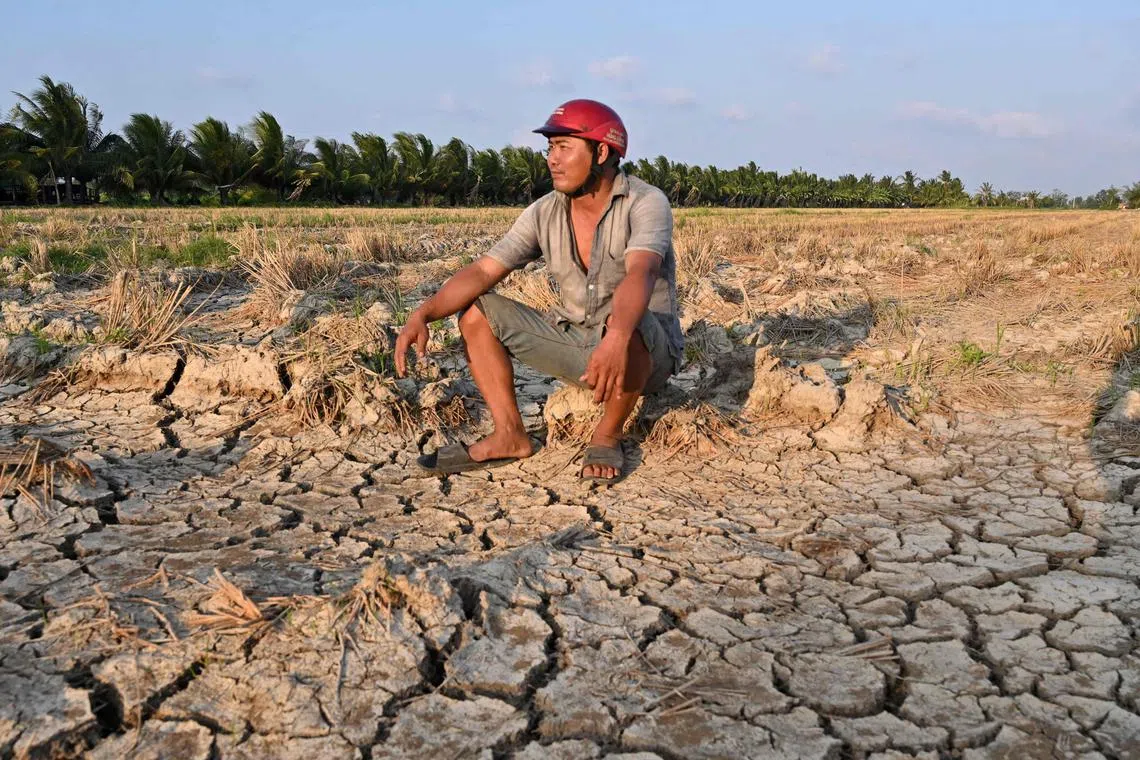Climate change is slowing heatwaves, prolonging misery: Study
Sign up now: Get ST's newsletters delivered to your inbox

A rice field damaged by drought and a month-long heatwave in Vietnam's southern Ben Tre province on March 19, 2024.
PHOTO: AFP
WASHINGTON – Climate change is causing heatwaves to slow to a crawl, exposing humans to extreme temperatures for longer than ever before, a study published in Science Advances said on March 29.
While previous research has found that climate change is causing heatwaves to become longer, more frequent and more intense, the new paper differed by treating heatwaves as distinct weather patterns that move along air currents, just as storms do.
For every decade between 1979 and 2020, researchers found heatwaves slowed down by an average of 8km an hour per day.
“If a heatwave is moving slower, that means heat can stay in a region longer, so that has effects on communities,” senior author Zhang Wei of Utah State University told AFP.
The researchers divided the world into three-dimensional grid cells and defined heatwaves as 1,000,000 sq km zones where temperatures reached at least the 95th percentile of the local historical maximum temperature.
They then measured their movement over time to determine how fast the hot air was moving.
They also used climate models to determine what the results would have looked like absent human-caused climate change, and found that man-made factors loomed large.
“It’s pretty clear to us that a dominant factor here to explain this trend is anthropogenic forcing, the greenhouse gas,” said Assistant Professor Zhang.
The changes have accelerated in particular since 1997 and, in addition to human causes, weakening upper atmospheric air circulation may play a part, the paper said.
The duration of heatwaves also increased from an average of eight days at the start to 12 days during the last five years of the study period.
“The results suggest that longer-travelling and slower-moving large contiguous heatwaves will cause more devastating impacts on natural and societal systems in the future if (greenhouse gases) keep rising, and no effective mitigation measures are taken,” the authors wrote.
Prof Zhang said he was worried by the disproportionate impacts on less-developed regions.
“In particular, cities that don’t have enough green infrastructure or not many cooling centres for some folks, in particular for the disadvantaged population, will be very dangerous,” he warned. AFP


